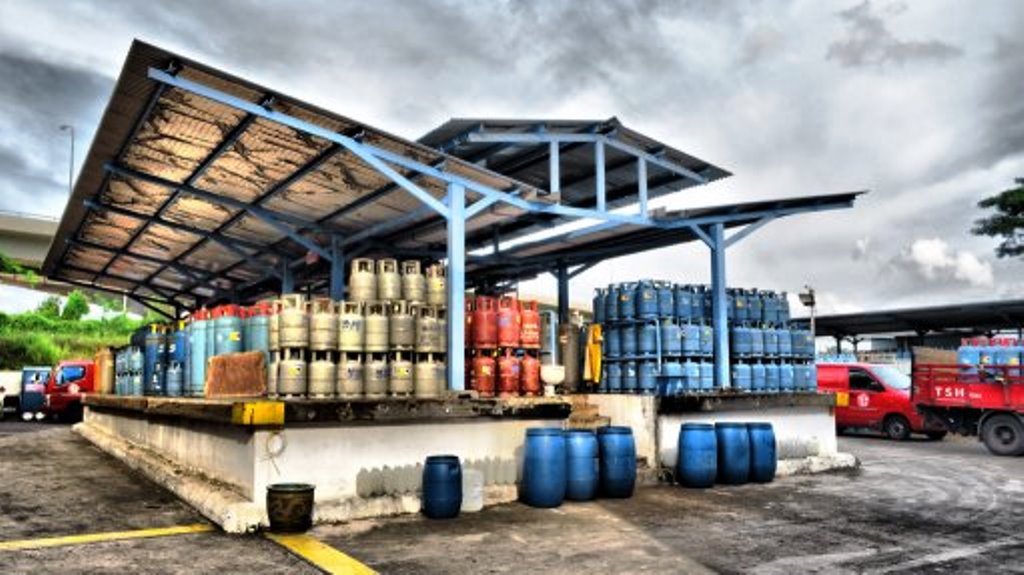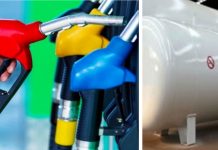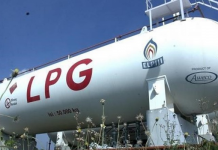TANZANIA’s natural gas consumers are currently facing a considerable sharp price hike for the energy as some suppliers impose as high as 40 per cent more charges for the large—size cylinder.
Energy and Water Utilities Regulatory Authority (EWURA) said it is implementing a series of measures, to curb the situation including subpoenaing some companies that deal with Liquefied Petroleum Gas (LPG) to give clarification and reasons behind the price increase.
Some companies have imposed a 3,000/- price increase on 6kg cylinder while the cost for a 15kg cylinder rose from 48,000/- to 54,000/- an equivalent of 6,000/- increase.
The large cylinder that retailed at 75,000/- is now sold at 105,000/-. A spot survey into retailer stores in various part of the country confirmed that many companies have their cylinders’ price hiked but some other energy distributors had slightly adjusted the prices for their gas cylinders.
Lake gas agents were selling a six-kg cylinder at a price of 20,000/- from 17,000/-, the 15-kg cylinder also jumped to 48,000/- from 43,500/-.
Mihan gas’ 15-kg now trade at 53,000/- from 48,000/- while the 6-kg of one of the largest importer and distributor of household cooking gas increased to 17,500/- from 16,000/-.
Such price increase has therefore pushed the price for other products for example one kilogramme of maize flour is now sold 2,000/- from 1,800/-.
The energy companies have not explained the reasons behind the price rise and Ewura now wants Oryx to provide substantive grounds or face legal actions.
Mr Titus Kaguo, Ewura’s Spokesperson said the regulator is aware some companies had hiked the much-needed cooking gas.
“We want the company to provide justification for its new prices,” Mr Kaguo said the companies will be presenting their defence soon, however, he cautioned that the authority would need the energy company to lower the price to match-up with the local market price.
However, EWURA admits that there are some minor challenges from fewer dealers who have been taking advantage of unmarked entry points to smuggle petroleum products.
The energy and water utility watchdog said it is satisfied by the level of compliance with its rules and regulations.
Ewura’s Eastern Zone Manager Nyirabu Musira clarified that the authority has been conducting initiatives to raise awareness especially on the revised regulations for liquefied petroleum gas to boost the penetration of the energy sub-sector.
Figures have clearly indicated that there has been a substantive rise in LPG consumption in the country with the importation rising from 20,000 metric tonnes in 2010 to 140,000 metric tonnes in 2018.
Despite the government adopting fresh regulations for the natural gas industry, EWURA has not officially begun regulating LPG retail prices.
According to the new regulations, if fully enforced EWURA would start regulating price for household cooking gas similar to fuel and water sectors.
Initially when EWURA introduced the regulations in 2018 seeking to regulate the LPG business, stakeholders including Oryx energies demanded the authority to sort out some issues before moving ahead with the plan.
Besides regulating cooking gas price, EWURA has planned to regulate the prices by introducing the bulk procurement system for the product.
It also wanted to prescribe only one type of LPG product—Butane gas, but stakeholders suggested propane also, be allowed entry.
The stakeholders acknowledged that much of the plan was well-intentioned but quickly wondered that both butane and propane have technical differences that make the former more expensive.
EWURA’s revised LPG regulations, according to Musira, would enable the authority to come-up with a system to regulate the prices of the product in the local market.
LPG price regulation could, therefore, start shortly after the authority introduces bulk procurement of the LPG.
Ideally, a Bulk Procurement System (BPS) for petroleum products was introduced in 2012 following the Petroleum (Bulk Procurement) Regulations of 2011 that allowed for bulk importation of petrol, diesel and kerosene.
On 15th March 2013, the Regulations were revised to include Liquefied Petroleum Gas (LPG) and Heavy Fuel Oil (HFO) as additional products to be procured through the BPS.
Due to shortage of storage capacity, importation of LPG through BPS was stalled. Energy companies that have so far invested in propane says had Tanzania imported commercial propane in 2016 and 2017 for instance, it could have saved between 7.5bn/- and 10bn/- respectively.
Some industry players believe Tanzania’s LPG industry is still too small to be strictly regulated but experts say the opposite, suggesting the LPG business to be guided by rules and regulations to avoid effects.
For some reason, EWURA thinks that importation of LPG through BPS will facilitate collection of accurate data of quantity and costs of the product and thus set up the cap, prices to be incurred by consumers.
The first LPG to be imported through BPS was in November 2016 and EWURA only suggested a pricing template to help wholesalers recover their prudently incurred costs.
As per Section 19(2)(b) of the EWURA Act, Cap 414, EWURA initiate a Public Inquiry to seek comments on the proposed review of the pricing formula in the Petroleum Products (Price Setting) Rules to include an LPG pricing template.
During the Inquiry period, EWURA collected comments from all stakeholders including LPG Wholesalers, LPG Distributors, EWURA Consumers Consultative Council (EWURA CCC), the Government Consultative Council (GCC), various government agencies and the general public.
Eng Raphael Nyamamu said EWURA shall maintain positive relations with energies and marketing companies as it also strives to identify traders who engage with illegal sale and distribution of liquefied natural gas.







